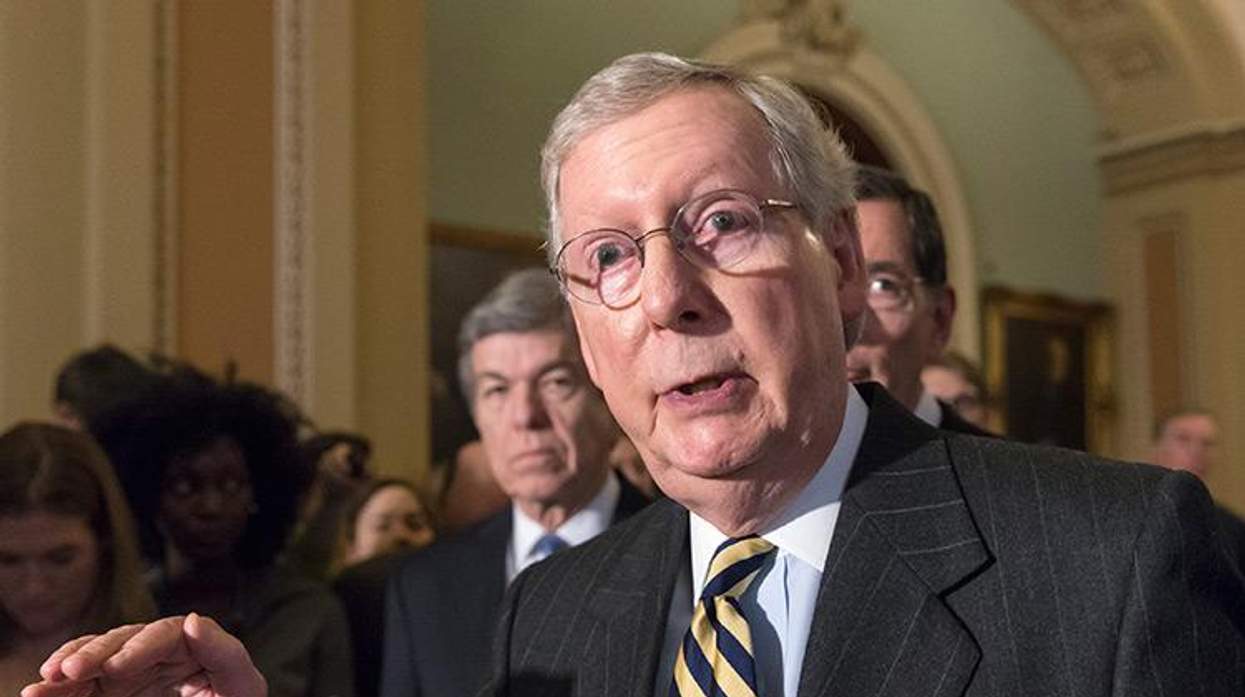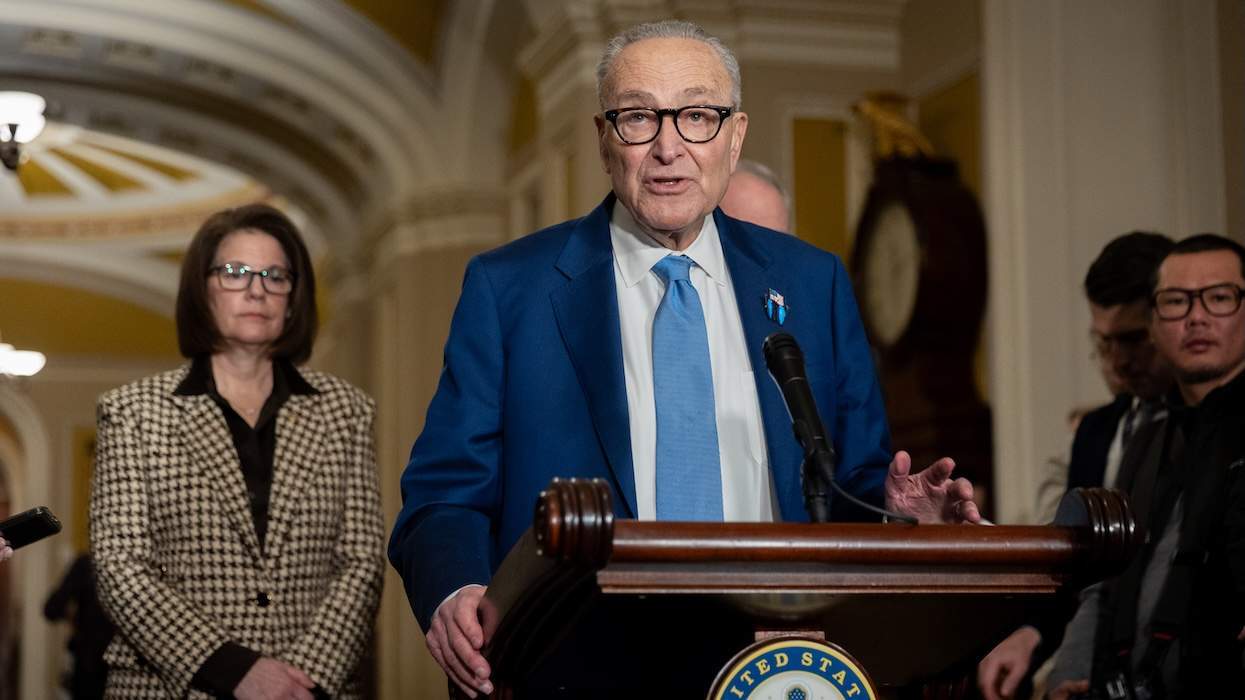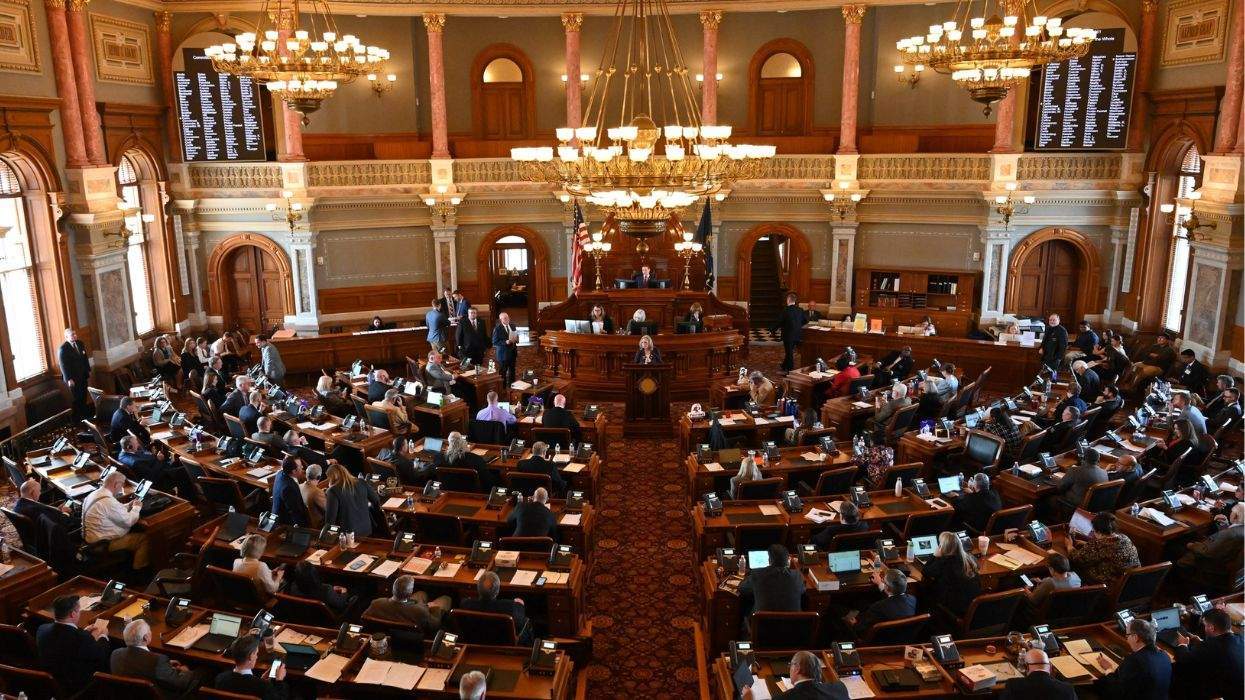The Republican response to President Obama's nomination of Merrick Garland to fill the vacancy on the U.S. Supreme Court has been swift.
As anticipated, Senate Majority Leader Mitch McConnell is leading the effort to block the president's nomination and "give the people a voice" to choose who will fill the seat on the high court left by the late Justice Antonin Scalia.
McConnell has said the Senate will not hold any confirmation hearings or take an up-or-down vote on Obama's nominee during the final year of his presidency, instead waiting to fill the court vacancy until a new president is elected, notes Reuters.
The Kentucky senator has been active on social media, leading a campaign called "give people a voice," which is in direct opposition to the Democratic-led hashtag on social media that supports President Obama's nomination, telling senators to "#DoYourJob."
McConnell accused President Obama of "politicizing" the nomination for the sake of the 2016 election:
Senate Republicans published a video on Twitter featuring a 1992 speech from then-Sen. Joe Biden, in which he criticized the politicization of the Supreme Court nominating process, which the Republicans have interpreted to be a statement that the Senate should not consider a high court nominee during an election year. Republicans pointedly called this policy the "Biden Rule" (others have said Biden's remarks were taken out of context and that he was indeed willing to vote on a nominee).
But the vice president fired back in a tweet that seemed directed at obstructionist Republicans:
Sen. Chuck Grassley of Iowa, who chairs the Senate Judiciary Commitee, issued a statement after the president's nomination, warning that "A lifetime appointment that could dramatically impact individual freedoms and change the direction of the court for at least a generation is too important to get bogged down in politics," according to the Associated Press.
That was a sentiment echoed in a breathless email sent to supporters from anti-LGBT legal nonprofit Liberty Counsel, which cautioned that Senate Republicans could not be trusted to "hold firm to their word that they will not conisder the President's SCOTUS nominees."
In that email, Liberty Counsel founder Mat Staver claims:
"The Left is employing every strategy possible to force an opportunity that could reshape the Court, sending the Constitution, our nation, and our culture careening down a path that would adversely impact the American people for generations!"
Similarly, the Republican National Committee called the president a "lame duck" who is doing a "disservice" to the Supreme Court by fulfilling his constitutional duty to nominate a judge to fill the vacancy:
The National Republican Senatorial Committee was even more pointed on Twitter:
In reality, every Supreme Court nominee since at least 1900 -- including those nominated in a president's final year in office -- have recieved an up-or-down vote in the Senate, according to SCOTUSblog, the official blog of the U.S. Supreme Court.
"The historical record does not reveal any instances since at least 1900 of the president failing to nominate and/or the Senate failing to confirm a nominee in a presidential election year because of the impending election," reports SCOTUSblog's Amy Howe. "In that period, there were several nominations and confirmations of Justices during presidential election years."
Democratic presidential front-runner Hillary Clinton noted that every Supreme Court nominee in history has received a vote in 125 days or less, with an average time between nomination and confirmation (or rejection) clocking in at just two months.
Nevertheless, in the wake of the president's nomination, Republican Senators closed ranks, remaining steadfast in their resolve not to let Obama place a third justice on the Supreme Court, after the president nominated Sonia Sotomayor in 2009 and Elena Kagan in 2010. Both of those nominees were confirmed -- and voted in favor of marriage equality in the court's landmark decision in Obergefell v. Hodges last June.
Sen. Kelly Ayotte, a Republican from New Hampshire who has opposed the freedom to marry and legal protections for the adopted children of same-sex couples, released a statement opposing the Supreme Court nominee. "I continue to believe the Senate should not move forward with the confirmation process until the people have spoken by electing a new president," Ayotte said.
Sen. Cathy McMorris Rodgers, a Republican from Washington State who chairs the House Republican Conference and has opposed marriage equality, released a statement after President Obama's nomination announcement, saying, "While the President has the right to nominate a candidate for the Supreme Court, the Senate has the equally important right to confirm or not confirm the nominee."
House Speaker Paul Ryan, who has a long history of opposing LGBT equality, issued a statement saying that he supports Sen. McConnell's efforts "not to move forward with the confirmation process," acknowledging that the qualifications of Obama's nominee were never the sticking point for his party.















